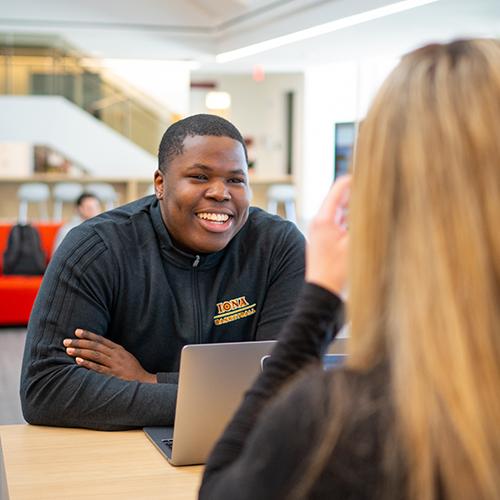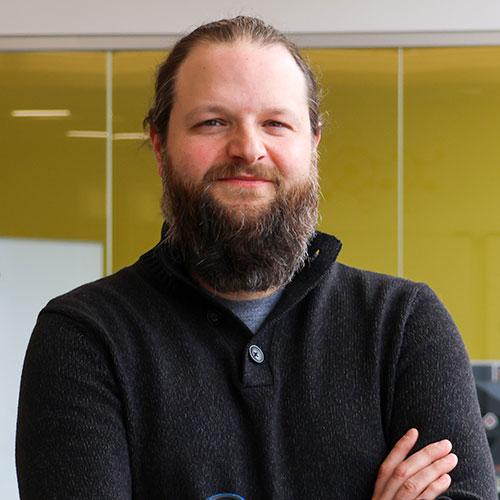What AI is Teaching Students—and Why It’s Important for Teachers
“We need to start thinking about AI as a tool to support our students' educational journeys and not an evil device used to cheat.”
By Rob Kissner
GaelVentures Program Manager at Iona University
In the ongoing conversation about generative AI and its role in education (or the way education is going to have to change to accommodate its ubiquity), there is a wide range of opinions. Some feel that AI has no role in the classroom and others acknowledge that it's here to stay but don’t quite understand the role it will play in their curriculum. Then there are the extremes: those who want to block it from their institution’s Wi-Fi, and those who cannot go 30 minutes without talking, using, or posting about some new advancement in AI. As educators, we must accept this new reality and evolve in tandem with a new technology that will undoubtedly shape our world in many ways. Thus, we need to start thinking about AI as a tool to support our students' educational journeys and not an evil device used to cheat.
At The Hynes Institute for Entrepreneurship & Innovation, we have been incorporating emerging technology in our courses for the last six years. We realized the value of AI in entrepreneurship education very early and have been outspoken about supporting AI initiatives across campus. The University, from the start, has accepted that AI is going to change the way we teach and approached this fact from a place of openness and intellectual curiosity, but also with a sense of urgency as we continue to engage in this conversation. Panel discussions, lunch and learn seminars, and many other engagements centering our generative AI conversation have been taking place among administrators and faculty for the past several semesters to define how we, as an institution, use this tool to support our student learning while simultaneously preparing our students for a world that is shifting so rapidly toward accelerated technological advancements in AI.
This semester, I have had the honor of collaborating with two fellow faculty, Dr. Liqian Bao, assistant professor of Business Analytics & Information Systems, and Dr. Mehedi Hasan, assistant professor of Computer Science, on a pilot course titled “AI in a Professional Setting.” This course aims to prepare students to enter a workforce that expects individuals and teams to understand how to use generative AI productively and ethically in their roles and careers.
Starting with a high-level overview of neural networks, machine learning, and large language models (LLM), the course equips students with a basic understanding of how AI works to better inform their use. The conversation then explores the ethical use of AI in various professional settings, ranging from hiring and human resources to marketing teams. Posed with a variety of scenarios, students are challenged to apply the current schools of thought and our institution’s approach to the ethical use of AI and respond with how they would handle each situation. The remainder of the course is focused on prompt engineering and practical applications of generative AI. The ultimate goal is for students to develop a playbook for their desired career – that’s to say, a guide on what AI tools to use, guidelines for prompts that are appropriate for their work requirements, and a personal code of ethics for personal and professional use.
I feel strongly that we must prepare our students for what’s to come, despite the uncertainty presented by this moment of time. It’s been interesting to learn that most of the students in the course intentionally don’t use generative AI regularly, and many have never used it beyond playing with ChatGPT here and there. This is likely because students look at generative AI as a tool for cheating, and have yet to realize that it is a tool that will enable them to work smarter and faster. Students need to be equipped with the ability to use the current tools and the mindset to continue to experiment with new AI tools as they emerge. Those who do not possess these skills and mindset will lose out on opportunities to those who do.
As an educator, I was an early adopter of ChatGPT and generally developed a practice to experiment with any new technology that has a “buzz,” so I am certainly no stranger to the value of AI. Teaching this class, however, has caused me to discover new and exciting ways to apply AI as a teaching tool. For example, when we used Microsoft’s CoPilot to generate marketing content, I discovered that we can utilize prompt writing as an exercise to develop our students’ communication skills. In doing so, we were able to teach our students to prompt AI as if they were giving instructions to their professional team. If asking AI to generate marketing content, students need to specify exactly what marketing content they need, for what platform it will be used, what details to include, the length of the content, the tone in which it should be written, and so forth. Inevitably, the results will not be perfect, so students must think about re-prompting as constructive feedback to their team to hone the desired output. Based on my experience, this self-reflective practice presents a huge educational opportunity regardless of what the AI tool outputs.
Teaching this course has helped me discover new ways of utilizing AI inside and outside the classroom. This, in turn, helps me support my fellow faculty at Iona to use AI in their curriculum and facilitate a conversation amongst peers as thought leaders in this space. The power here is Iona’s community of practice that allows us to evolve with the technology and, thus, teaching AI makes us also better at teaching with AI, and vice versa. As educators, we need to understand how to use these tools in our classrooms so students can productively use them in their careers. We have a tremendous opportunity to enable and empower our students and each other to leverage the power of AI.
ABOUT IONA
Founded in 1940, Iona University is a master's-granting private, Catholic, coeducational institution of learning in the tradition of the Edmund Rice Christian Brothers. Iona's 45-acre New Rochelle campus and 28-acre Bronxville campus are just 20 miles north of Midtown Manhattan. With a total enrollment of nearly 4,000 students and an alumni base of more than 50,000 around the world, Iona is a diverse community of learners and scholars dedicated to academic excellence and the values of justice, peace and service. Iona is highly accredited, offering undergraduate degrees in liberal arts, science and business administration, as well as Master of Arts, Master of Science and Master of Business Administration degrees and numerous advanced certificate programs. Iona students enjoy small class sizes, engaged professors and a wide array of academic programs across the School of Arts & Science; LaPenta School of Business; NewYork-Presbyterian Iona School of Health Sciences; and Hynes Institute for Entrepreneurship & Innovation. Iona also continues to be recognized in prestigious national rankings. Most recently for 2025, Iona has been named one of the nation’s best colleges by The Princeton Review, The Wall Street Journal, Forbes and others. Additionally, U.S. News & World Report recognized Iona as one of top for social mobility in the country, while Georgetown University's Center on Education and the Workforce (CEW) ranked an Iona degree in the top 5 percent nationally for long-term return on investment. Iona’s LaPenta School of Business, meanwhile, is also accredited by AACSB International, a recognition awarded to just 6 percent of business schools worldwide. In addition, The Princeton Review recognized Iona’s on-campus MBA program as a “Best Business School for 2024.” Iona also offers a fully online MBA program for even greater flexibility. In July 2021, Iona announced the establishment of the NewYork-Presbyterian Iona School of Health Sciences, which is now principally located on Iona’s Bronxville campus in collaboration with one of the nation’s top hospitals. Connecting to its Irish heritage, Iona also opened a new campus in County Mayo, Ireland, located on the historic 400-acre Westport House Estate. A school on the rise, Iona officially changed its status from College to University on July 1, 2022, reflecting the growth of its academic programs and the prestige of an Iona education.



